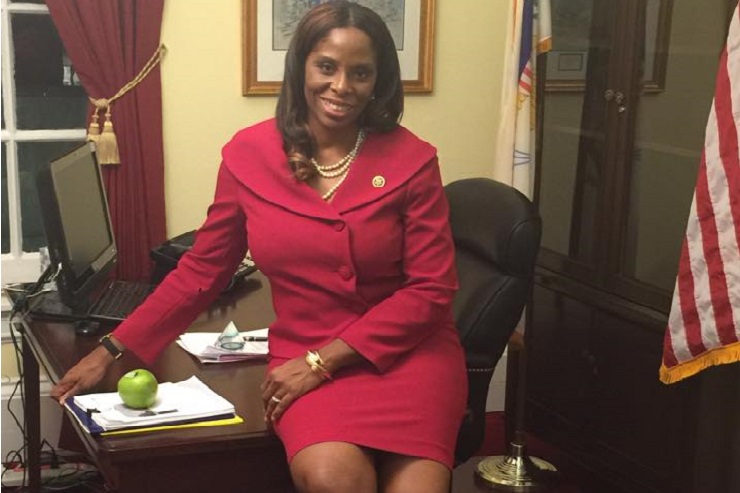WASHINGTON — Virgin Islands Delegate to Congress Stacey Plaskett, ranking member on the House Subcommittee on the Interior, Energy and Environment, has introduced “The Puerto Rico and Virgin Islands Equitable Rebuild Act of 2018.”
In a news release issued Tuesday, Plaskett said the two territories need the help.
“Puerto Rico and the United States Virgin Islands are part of America, and the millions of people who live in these U.S. territories are Americans. Hundreds of thousands from these islands have served in the United States Armed Forces. Many have died in service to our country,” Plaskett said.
The territories were hammered by Hurricanes Irma and Maria in September. While recovery aid has flowed into the Caribbean, the need is much greater than the help that’s been offered, according to Plaskett.
“A few months ago, Americans in the Virgin Islands and Puerto Rico suffered direct hits by two of the most powerful hurricanes ever to strike the United States,” she said in the news release. “Homes, possessions, and businesses along with essential facilities like hospitals and schools were lost. Energy systems and other vital infrastructure were completely destroyed, leaving hundreds of communities without electricity or access to health care and clean drinking water. Large swaths of the revenue base necessary for normal operations collapsed.
“The recent supplemental for disaster assistance amounted to more than $13 billion dollars, less than what was requested just for Puerto Rico; and yet, it is meant to cover expenses across three of the largest states in America in addition to the Virgin Islands and Puerto Rico. Aside from the relatively little funding that has been provided for recovery of these islands, many issues unique to their recovery have not been addressed.”
Plaskett said those issues are:
* Failure to fix the Medicaid situation in the Virgin Islands and Puerto Rico,
* Failure to waive “unworkable” cost share requirements for FEMA and Army Corps projects, which could put federal funding out of reach.
* Disaster response legislation to date also has not eliminated disparities in the law holding back the ability of the Virgin Islands and Puerto Rico to rebuild with more resiliency than woefully deficient pre-storm conditions,
* and failure to extend important federal programs that currently leave out Americans in U.S. territories.
“This is not the message that Congress should be sending millions of our fellow citizens as they endure some of the darkest days in their history,” she said. “These islands need a full recovery with a vision for a better future, and they need it now. That is why we have proposed The Puerto Rico and Virgin Islands Equitable Rebuild Act of 2018.”
The proposed legislation is “a Marshall Plan type of response needed for a better future in the Virgin Islands and Puerto Rico,” Plaskett said. The Marshall Plan, named for President Harry Truman’s Secretary of State, George C. Marshall, was an American initiative to aid war-torn Western Europe after World War II. The U.S. gave more than $13 billion (in 1948 dollars) in economic assistance to help rebuild Western European economies.
A similar commitment is needed now in the territories, Plaskett said.
“In addition to addressing immediate humanitarian needs, the bill takes steps to see that these territories not only recover, but also are able to rebuild in a way that fully empowers them to thrive. It contains provisions for strong recovery assistance without pulling local governments into a more deleterious fiscal situation,” she said.
Plaskett said her bill would allow the islands to use disaster funding to lay the groundwork for a more resilient and clean energy grid, strengthen farms and nutrition, addresses disparities in Medicaid and federal health programs, improves schools, college access, childcare and veterans facilities, and make robust investments in infrastructure and economic development, including extending programs currently unavailable to Americans in U.S. territories.

